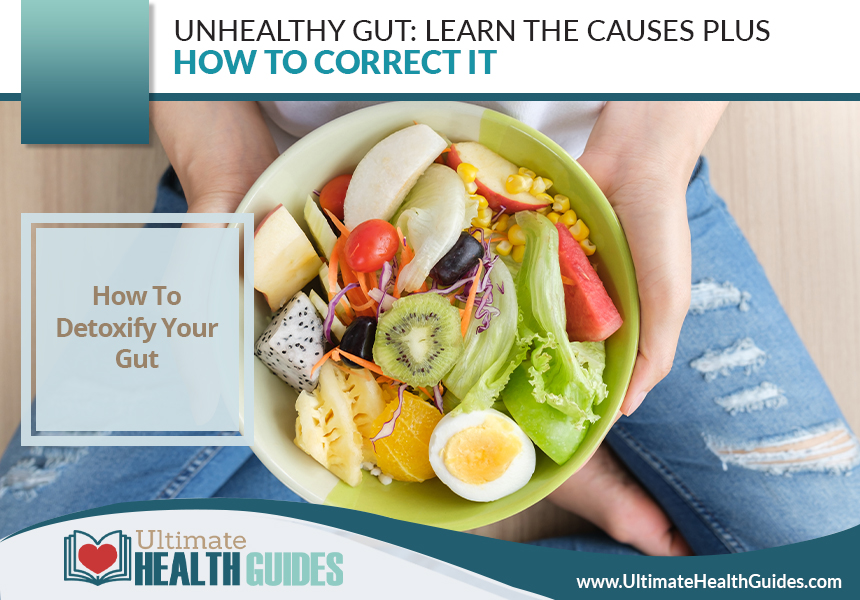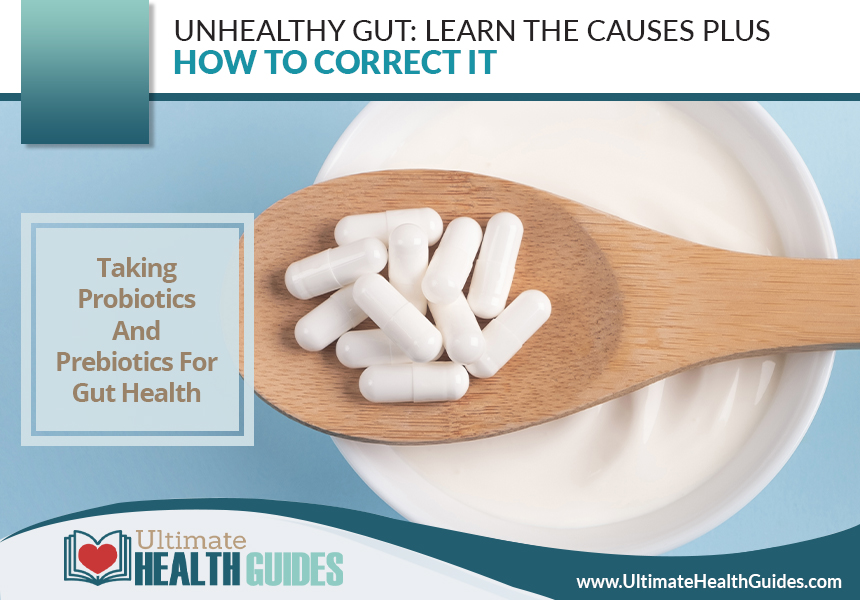Your immune system employs several defenses to protect you from pathogens and other foreign agents; these include physical barriers such as the skin and mucous membranes, chemical barriers like tears and stomach acid, and special cells that recognize and eliminate invading organisms. Your body also manufactures antibodies that recognize specific invaders so they can be removed quickly. Finally, if an intruder can evade all of your body’s defenses, your immune system can mount an attack against it. This response is known as the inflammatory response and involves specialized cells that recognize and eliminate foreign antigens. By utilizing these various mechanisms, your immune system can protect you from a variety of dangerous pathogens.
One of the ways it does this is through your gut microbiome; the gut microbiome is a complex ecosystem of bacteria, fungi, and other microorganisms that lives in your intestines. This rich ecosystem plays an important role in supporting your immune system, as it helps prevent pathogenic organisms from entering the body by creating a protective barrier. The bacteria in the gut can also produce compounds that help control inflammation, support tissue repair, and stimulate the production of immune system cells. Additionally, the gut microbiome helps educate your immune system. By exposing it to a constant stream of harmless antigens, it teaches it how to recognize true threats.

Things That Can Disturb Your Gut Microbiome
There are specific things that can disrupt the balance of the gut microbiome. Poor diet, use of antibiotics, and excessive alcohol consumption are all known to disturb the delicate balance of bacteria in your intestines. These other things below can disturb your gut microbiome as well.
Processed foods: Processed foods are low in fiber, which can lead to the growth of unhealthy bacteria.
Excess sugar: Too much sugar consumption has been linked to changes in the gut microbiome that can contribute to inflammation and disease.
Chronic stress: Stress has a direct influence on your gut microbiome, as it is known to reduce the diversity of beneficial bacteria.
Environmental toxins: Toxins like pollution, heavy metals, and pesticides can all affect your gut microbiome, leading to unhealthy changes in the environment.
Sedentary lifestyle: Too little physical activity has been linked to changes in the gut microbiome, leading to a lack of diversity and an increased risk of disease.
Pesticides: Pesticide exposure has been linked to a decrease in beneficial bacteria as well as an increase in harmful microorganisms.
Antibiotics: Antibiotics can disrupt the balance of beneficial bacteria, leading to an overgrowth of harmful microorganisms.
By controlling these factors, you can help ensure that your gut microbiome remains balanced and healthy. This will, in turn, support your immune system and protect you from a variety of pathogens. It is vital to note, however, that maintaining a healthy gut microbiome does not guarantee that you will never become ill. It is just one piece of the puzzle when it comes to protecting your body from disease.

How An Imbalanced Gut Hurts Your Immune System
Harmful bacteria produce damaging toxins, which can slow down your immune system and prevent it from responding to threats. Additionally, an imbalanced gut microbiome can disrupt the production of antibodies that are necessary for fighting off pathogens. It can also create inflammation, which compromises your body’s ability to fight infection. This is why maintaining a healthy gut microbiome is so important; it helps protect you from a variety of diseases by keeping your immune system functioning properly.
Your immune system responds to threats in a variety of ways. It produces antibodies that recognize and eliminate foreign substances while also stimulating the production of specialized cells that recognize and destroy invading pathogens. Additionally, your gut microbiome plays an important role in supporting your immune system by creating a protective barrier and helping educate it on how to recognize true threats.

How To Detoxify Your Gut
It is vital to detoxify it regularly to keep your gut healthy. This can be done by following a diet that is high in fiber and low in processed foods and limiting your intake of unnecessary sugars and toxins. There are several ways to detox your body naturally, including the ones below.
Citrus pectin: Citrus pectin helps cleanse the digestive tract and bind up toxins.
Ginger: Ginger is known for its anti-inflammatory properties, which can help reduce inflammation in the gut.
Chlorella: Chlorella is a type of algae that binds to toxins and helps eliminate them from your body.
Apple cider vinegar: Apple cider vinegar is known for its ability to remove toxins from the intestines and help reduce inflammation.
By detoxifying your gut regularly, you can help maintain a healthy and balanced microbiome, which will, in turn, support your immune system. Additionally, it is vital to keep in mind that detoxification should be done in moderation. Over-detoxification can deplete your gut of beneficial bacteria, weakening your immune system in the process.
A healthy diet and lifestyle are essential for maintaining a balanced gut microbiome. It is vital to note this. Eating a variety of nutrient-dense foods, exercising regularly, and getting plenty of rest will all go a long way.

Taking Probiotics And Prebiotics For Gut Health
Taking probiotics and prebiotics can also help promote a healthy gut microbiome. Probiotics are beneficial bacteria that can be taken as supplements or found naturally in fermented foods, like yogurt, kimchi, and sauerkraut. Prebiotics are fibers found in certain plant-based foods that serve as food for the good bacteria in your gut.
Taking probiotics and prebiotics can help replenish beneficial bacteria in the gut. These can support a healthy microbiome and boost your immune system. Here are some good things to keep in mind when taking probiotics and prebiotics.
• Start with a low dosage, then gradually increase it as your body adjusts.
• Choose a quality product that contains a variety of beneficial bacteria strains.
• Take them regularly for the best results.

Exercising Daily For Gut Health
Regularly exercising is an important part of maintaining a healthy gut. Exercise helps reduce inflammation, boost your overall health, and promote the production of beneficial bacteria in the gut microbiome. Aim for at least 30 minutes of moderate exercise per day to keep your body and your gut in peak condition. Additionally, regular exercise can also improve digestion, which is essential for optimal gut health.
Taking the kids to the park, going for a swim in the local pool, or simply taking a walk can all be great ways to incorporate more movement into your routine. If you can’t afford a gym membership, you can also take advantage of free online fitness classes or follow along with fitness videos on YouTube. The whole idea is to simply find something that you enjoy and make it part of your routine.

Eating A Healthy Diet For Gut Health
Eating a nutrient-dense diet is essential for maintaining gut health. Eating plenty of fruits and vegetables, whole grains, healthy proteins, and fermented foods can all help promote a balanced microbiome in the gut. Additionally, limiting your intake of processed foods and unnecessary sugars will benefit your overall health as well as your gut microbiome. Here are some foods to include in your diet.
• Fermented foods, such as yogurt, kimchi, sauerkraut, and pickles
• Fruits and vegetables, like apples, kale, carrots, and sweet potatoes
• Whole grains, such as oats, quinoa, and brown rice
• Healthy proteins, like eggs, fish, legumes, and nuts
• Healthy fats, like avocados, olive oil, and nut butter
Eat a nutritious diet. By doing this, you can help support your gut health and boost your immune system. Additionally, making changes to the way that you eat can be a great way to reduce inflammation in the gut and maintain a healthy balance of bacteria.

Gut health is essential for overall health and well-being, and there are several steps you can take to keep your gut microbiome balanced. Eating a nutrient-rich diet, exercising regularly, reducing your exposure to toxins, and taking probiotics and prebiotics are all great ways to promote a healthy gut. With the right lifestyle habits, you can help keep your gut microbiome in peak condition and support your overall health.
By following the things you learned here today, you can create an environment where your beneficial bacteria thrive, allowing you to reap all of their amazing health benefits. Keeping your gut microbiome balanced will also help support your immune system and keep you feeling your best. So take the time to make sure that you’re doing all you can to promote gut health today!














